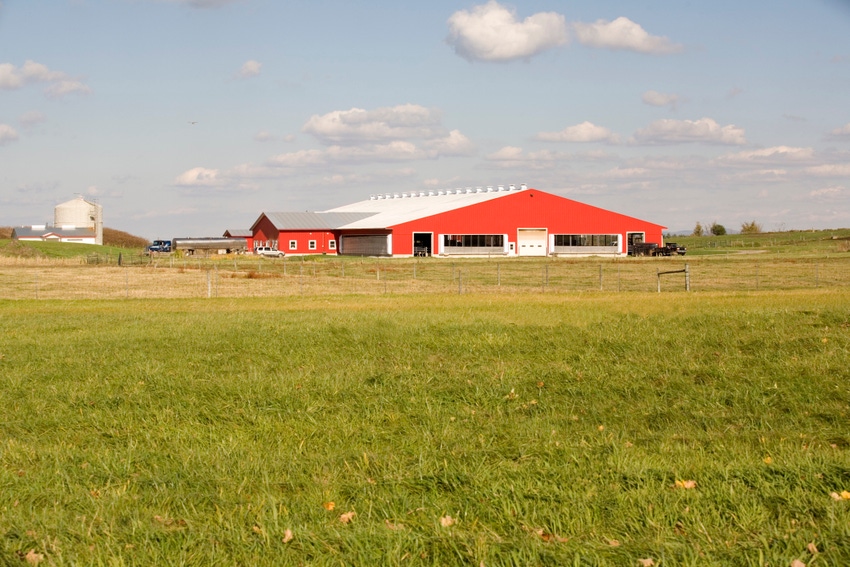- Nutrition & Health
- Swine Health and Nutrition
- Beef Health and Nutrition
- Dairy Health and Nutrition
- Poultry Health and Nutrition
Auburn University home to new Animal Health and Agro-/Bio-Defense Program
Initial funding is $647,529, with planned funding of more than $2.5 million in the next five years.
September 17, 2021

The Auburn University College of Veterinary Medicine is home to the new Animal Health and Agro-/Bio-Defense, or AHAD, Program through funding from the USDA-Agricultural Research Service.
Initial funding to Auburn is $647,529, with planned funding of more than $2.5 million in the next five years. The partnership is made possible through a collaborative non-assistance cooperative agreement with the USDA-ARS.
The program will complement and extend the impact of ongoing work in this domain as a new element in the national network of U.S. government agencies and land-grant universities, focusing primarily on diseases affecting economically important domestic animals that pose a threat to public health or impact national security and economic stability locally, nationally and globally.
According to Dr. Frank “Skip” Bartol, Alumni Professor and associate dean for research and graduate studies in the College of Veterinary Medicine—who is spearheading AHAD along with Dr. Paul Walz, head of the Department of Pathobiology—Auburn’s AHAD program will be positioned to serve as a southern regional node in the Coalition for Epi Response Engagement Science, or CERES, that now includes primarily universities in the Midwest and West.
Initially, research in the AHAD space will involve a collaborative partnership with scientists in the USDA-ARS through the U.S. National Poultry Research Center in Athens, Georgia. This will allow subject matter experts at Auburn to take advantage of the expertise of peers in the federal space and will enable access to state-of-the-art biosafety level-3 facilities necessary to safely advance solutions for animal health and agro-/bio-defense challenges.
The AHAD/ARS partnership will advance the education and training of next-generation scientists, filling a critical need in this important domain, according to Bartol.
The newly established AHAD program complements and extends ongoing advanced training of next-generation scientists at Auburn who will define the workforce at the National Bio and Agro-Defense Facility, or NBAF, soon to be opened in Manhattan, Kansas, through the USDA-Animal and Plant Health Inspection Service Scientist Training Program.
The NBAF will be the first laboratory facility in the U.S. to provide maximum biocontainment (BSL-4) space to enable study of high-consequence zoonotic diseases affecting large livestock and will support pilot-scale development of vaccines and other medical countermeasures designed to mitigate threats to agrosecurity.
“As part of that nationwide effort, Auburn’s AHAD program will expand the mission and capacity of the College of Veterinary Medicine’s existing animal health research to include research complementary to the goals of the USDA and other federal agencies charged to ensure national security and public safety,” Bartol said. “It will work closely with partners in the allied federal space and will leverage the capabilities of a National Animal Health Laboratory Network-supported program established at the Alabama State Veterinary Diagnostic Laboratory, adjacent to the veterinary campus.
“Auburn subject matter experts with significant food animal research experience already include specialists in internal medicine, virology, immunology, molecular diagnostics, vaccinology and zoonotics. We hope that establishment of AHAD will further enable expansion of this program to include recruitment of an epidemiologist/informatics specialist and one or more specialists in microbiomics/pathogenomics.”
AHAD will focus on the biodefense mission, consistent with four strategic areas of the National Biodefense Strategy as identified by the USDA-ARS. Those areas include predicting the emergence of pathogens in livestock and associated wildlife; understanding the ecology of exotic, emerging and reemerging pathogens; incident response research; and the development of veterinary medical countermeasures for early detection, prevention and treatment of foreign and emerging animal diseases.
In addition to work with the U.S. National Poultry Research Center, the AHAD program at Auburn will be strengthened by proximity to and engagement with the U.S. Centers for Disease Control and Prevention in Atlanta. Work will advance the USDA-ARS National Program 103 Action Plan designed to protect and ensure the safety of the nation’s agriculture and food supply through improved disease detection, prevention and control, as well as contribute to this area of national need through service as a training center for the next generation of veterinary researchers and basic animal health scientists.
“Over the years, the Auburn College of Veterinary Medicine has established working relationships with a number of federal agencies operating in the agro-/bio-defense space,” Bartol said. “AHAD will work closely with its partners to meet the CERES mission to ‘protect and defend America’s agricultural industry against global health threats and provide innovation for food security, now and into the future.’”
You May Also Like



